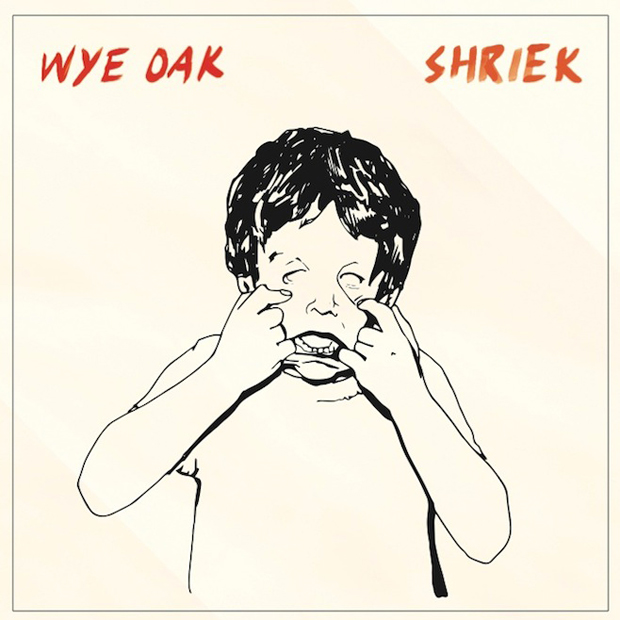As a band, it takes guts to change. Understandably, some fans will be alienated, but to maintain artistic integrity, some bands simply have to move on past the sound they started with. Such is the case with Wye Oak’s latest record, “Shriek.”
Wye Oak released their first label-supported album, “Civilian,” in 2011, which received critical acclaim and was named “Best album of 2011” by entertainment website The A.V. Club. On “Civilian,” the band had an indie folk rock sound, similar to many of their peers of the time, but they had their own unique take on the genre, using textures inspired by shoegaze bands of the ‘90s. However, with “Shriek,” Wye Oak has abandoned the guitar-centric style and instead traded in their six-strings for synthesizers.
Back in 2009 when the band was still completely independent and releasing albums themselves, frontwoman Jenn Wasner expressed her attachment to her guitar in an interview with culture blog LAist.
“I know it’s cliche,” she said, “but I love it. I would go crazy without it.”
However, Wasner has now abandoned her guitar in the name of musical exploration, and in many ways, it’s paid off.
The first track, “Before,” opens with percussive synth and a tight and groovy bass line. Wasner’s strong vocals are at the forefront of the song while the subtle instrumentation fades to the back to serve as a foundation. All traces of the Local Natives-esque sound are gone, but don’t fear, it still sounds like Wye Oak.
Make no mistake, this is not a synth pop album. Synths are used often, but they are used almost as a guitar would be. They support the vocals and fit tightly next to the percussion. The title track uses piano in this way as well; it’s light and percussive, but memorable. The synths present in “The Tower” are very reminiscent of Sufjan Stevens’ record “Age of Ads.” It’s slightly dark and strange but has a distinct groove that rises and recedes, giving the song dynamic depth.
The element that stands out the most by far is the bass. Since setting down her guitar, Wasner has picked up the bass and wields it with confidence and prowess. Basslines are creative and melodic yet never come off as self-indulgent. This is another factor that separates Wye Oak from the hoards of indie rock bands in the scene today.
The last track on the album “Logic of Color” contains superb drumming which continues to keep the album rhythmically interesting. There is very little in the way of oversimplified beats on “Shriek,” which is a breath of fresh air among the band’s peers.
Wye Oak has done what many bands are afraid to do. They decided to make a change — and quite a drastic one — but all in all, it was quite worth it. There were moments when the guitars were sincerely missed. However, if the band had put their creative desires aside in an attempt to please their audience, the album would have most likely come off as insincere and contrived. “Shriek” is a big change, but it is also a beautiful and distinctive album that perhaps has paved a new road for the band, giving them their own individual stamp on the genre of Indie Rock.







